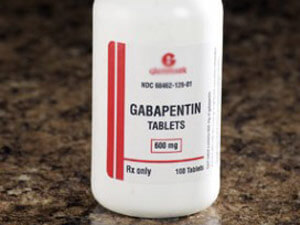Drug addiction has wide-ranging consequences in a woman’s life. A woman addicted to drugs tends to not only suffer damage physically, but also suffer damage in her relationships, career and other aspects of her life. The good news is drug treatment centers like Residence XII that cater exclusively to women can help women slowly untangle the web that drug addiction weaves. Here we’ll explore five areas where drug addiction takes a major toll on women, as outlined by the PsyBlog.
Domestic Violence
Studies have shown a significant link between addiction and domestic violence. While there are many reasons this occurs, one scenario might be a woman who stays with an abusive partner because he is her primary means of obtaining drugs. She may remain in the abusive relationship to her harm because her body has become dependent on the drugs and the abusive partner provides her with a steady stream. Another scenario might be a woman who turns to drugs to cope with the physical and emotional trauma of an abusive relationship.
Work
A woman who suffers from drug addiction may also be unable to keep a steady job. Even high-functioning addicts who are able to remain employed may suffer loss of revenue or miss out on opportunities for advancement because their addiction contributes to lack of productivity, poor social skills at work or even absenteeism. Any loss of work or income due to addiction directly affects the woman’s ability to provide for herself and her family, particularly if the woman is the primary breadwinner.
Family
Women who abuse drugs may also neglect or lash out at the most important people in their life—their family. The woman’s children may miss out on much-needed quality time and nurturing from a mom whose top priority is getting high. Women may also lose interest in a spouse or loving partner that used to mean the world to them, leading to the breakdown of a once-healthy family.
Overdose and Withdrawal
Women who abuse drugs eventually build higher and higher tolerances for that drug. This means the woman must take increasingly higher doses of the drug to achieve the same high she experienced in the past. When a woman’s body becomes dependent on dangerously high doses of a drug, she not only increases her risk of overdose, but also risks suffering major physical side effects when she does stop using the substance.
Health
Drugs have a profound negative effect on a woman’s body—affecting her brain, heart, liver, reproductive health and more. Women who are under the influence of drugs are also at much greater risk of unintentional injuries, car accidents, and contracting STDs. For woman who are pregnant or who could become pregnant, the devastating effects of drugs on fetal health is well documented.
About Residence XII
Residence XII offers drug rehab for women as well as alcohol treatment that empowers women while leading them on their journey to recovery. At Residence XII, we welcome all women (+18) and aim to provide the highest quality inpatient and outpatient treatment for addiction available. Residence XII also offers a family program aimed at helping family members and loved ones understand how to best help the patient in recovery. Contact us for a free drug and alcohol assessment or to learn more about how we treat women with drug or alcohol dependency. Residence XII is State Licensed by CARF (Commission on Accreditation of Rehabilitation Facilities) and a member of the NAATP (National Association of Addiction Treatment Providers).
(Photo by stockimages via FreeDigitalPhotos.net)
The status of women has improved greatly in many areas of the world, and women around the globe are entering senior management positions in greater numbers than ever before. As these women work hard to advance and perform at a high level in the business world, many feel the pressure to drink heavily in an effort to project the same sense of confidence as their male counterparts, according to a recent article in Quartz.
Women Say Hard Drinking Conveys Professional Strength
Quartz research showed that female management professionals in major international cities like Moscow, Bangkok, Shanghai, Seoul and Sao Paulo were increasingly networking over cocktails to give off a sense of strength and toughness in their professional persona.
The women interviewed said drinking strong drinks — like cognac, whiskey and rum — in large quantities was a means of demonstrating their competitive edge and the grit of their business performance. Drinking like a man, so to speak, helped them appear experienced and sure of themselves in a male-dominated business world, many said. In some countries, the corporate culture is steeped in unspoken social codes that pressure women to keep pace with men in such ways, the article noted.
Women and Alcohol: The Risk
While the achievements of professional women around the world are to be commended, women in the U.S. and abroad put themselves at risk by drinking heavily to achieve business status, particularly because women’s bodies process alcohol differently than men.
Since women’s bodies tend to be smaller and have a higher fat-to-muscle ratio than men on average, alcohol tends to be absorbed more quickly into a woman’s bloodstream, increasing the potential of alcohol toxicity in women. While not all binge drinkers are alcohol dependent, repeated patterns of binge drinking could lead to a physical or psychological dependence on alcohol.
About Residence XII
If you suspect your drinking is getting out of control, seek help from Residence XII. We offer drug and alcohol treatment that empowers women while leading them toward recovery. At Residence XII, we welcome all women (+18) and aim to provide the highest quality inpatient and outpatient treatment for addiction available. Residence XII also offers a family program aimed at helping loved ones support the women in recovery. Contact us for a free drug and alcohol assessment or to learn more about how we treat women with drug or alcohol dependency. Residence XII is State Licensed by CARF (Commission on Accreditation of Rehabilitation Facilities) and a member of the NAATP (National Association of Addiction Treatment Providers).
(Image by Damir Spanic via Stockvault.net)
Men and women handle alcoholism in different ways. Not only do men and women handle treatment differently and have different relapse triggers, but men’s and women’s bodies also metabolize alcohol differently, according to a recent article in the Miami Herald. Here we’ll take a look at some of the key ways alcohol uniquely impacts women.
The Depression Factor
Women are more likely to suffer from depression than men, and depression more often serves to exacerbate alcoholism and addiction in women. Depression may either be a root cause of alcoholism as women attempt to use alcohol to cope or self-medicate, or the depression may stem from alcohol abuse, since alcohol itself is a depressant.
One survey showed that the factors cited most often by women as reasons for alcohol addiction were depression, anxiety, and a critical internal voice, the article explained. It’s also more likely that exposure to trauma plays a role in a woman’s battle against alcoholism, the article noted.
How Alcohol is Metabolized
Women tend to weigh less and have a higher fat-to-muscle ratio than men, which leads to significant differences in the way alcohol is metabolized in a woman’s body, the article explained. Alcohol distributes itself much more easily in fat and water than in muscle.
In addition, because of women’s fat-to-muscle ratio, their bodies produce less of a chemical called alcohol dehydrogenase, which breaks down alcohol into a less harmful chemical. This chemical is found more commonly in muscle than in fat or water. This means women metabolize alcohol more slowly than men and that alcohol is distributed in women’s bodies in larger quantities, placing women at a higher risk of experiencing the toxic effects of alcohol, the article noted.
The Critical Internal Voice
Female alcoholics going through treatment often point to a critical internal voice as a trigger that frequently leads to problem drinking. This negative inner voice resounds in a women’s mind with thoughts like:
- You are a terrible wife and mother.
- There’s no way someone like me could ever get sober.
- You deserve to suffer for your failures.
While men deal with this negative inner monologue as well, women were simply more likely to point it out as a trigger. This negative inner voice also tends to make women self-conscious about going to treatment, as they fear that their work, family and friends might think less of them as an addict in recovery.
Group therapy is one effective means of addressing these triggers with other women going through a similar struggle. Addiction treatment at a recovery center that focuses exclusively on women, as well as ongoing counseling after treatment, can also be effective at helping women get to the root of triggers like this and overcome alcohol addiction.
About Residence XII
Residence XII offers drug and alcohol treatment that helps to empower women while leading them on their journey toward recovery. At Residence XII, we welcome all women (+18) and aim to provide the highest quality inpatient treatment and outpatient treatment for addiction available. Residence XII also offers a family program aimed at helping family members and loved ones understand how to best help the patient in recovery. Contact us for a free drug and alcohol assessment or to learn more about how we treat women with drug or alcohol dependency. Residence XII is State Licensed by CARF (Commission on Accreditation of Rehabilitation Facilities) and a member of the NAATP (National Association of Addiction Treatment Providers).
(Photo by David Castillo Dominici via FreeDigitalPhotos.net)
Some women are at greater risk of alcohol abuse or alcoholism than others. Even though many women are able to drink alcohol in moderation without suffering any harmful effects, women who have one or more of the following risk factors should be cautious about drinking:
1.) A family history of alcohol problems
Women with a family history of alcohol dependence may be at greater risk of becoming alcoholics themselves. Research has shown that genetic factors do have an effect on alcoholism, and that children of alcoholics are about four times as likely to have alcohol problems as the rest of the population, according to the National Institute on Alcohol Abuse and Alcoholism. The good news is you can take steps to mitigate this risk, such as avoiding underage drinking, only drinking moderately as an adult, or joining a support group for the children of parents or other blood relatives with alcohol problems.
2.) A partner who drinks heavily
Women who are married to a heavy drinker or romantically involved with a heavy drinker are at greater risk of problem drinking than other women.
3.) The ability to “hold her liquor” more than others
Women who are able to drink excessively without feeling the same physical effects of drunkenness as other women may be at greater risk of alcohol abuse or alcoholism. Women who do not experience loss of motor control or mental clarity to the same degree as other women who drink may be lulled into a false sense of security that they can repeatedly binge drink without any serious repercussions.
4.) A history of depression
Women who are diagnosed with depressive disorder may turn to alcohol or drugs to cope with their condition. Sadly, this behavior can actually worsen depression by enhancing the severity and duration of many depression symptoms.
5.) A history of childhood abuse.
Women suffering from the shame and post-traumatic stress of past abuse may also turn to alcohol as a coping mechanism. Research shows that women who were abused as children may be at higher risk of alcohol-related problems as an adult.
If you have any of the above risk factors for alcoholism, consider your relationship with alcohol carefully. If you are unable to stop or reduce your drinking, a formal alcohol treatment facility for women can help.
About Residence XII
Residence XII offers DRUG TREATMENT that helps to empower women while leading them on their journey toward recovery. At Residence XII, we welcome all women (+18) and aim to provide the highest quality INPATIENT ALCOHOL TREATMENT available. We provide FREE ASSESSMENTS and references for women seeking more information about alcohol dependency. Residence XII also offers OUTPATIENT ALCOHOL TREATMENT PROGRAMS and FAMILY TREATMENT PROGRAMS. Residence XII is State Licensed by CARF (Commission on Accreditation of Rehabilitation Facilities) and a member of the NAATP (National Association of Addiction Treatment Providers).
(Photo by Witthaya Phonsawat via FreeDigitalPhotos.net)
Researchers think they may have found a possible link between a well-known weight loss procedure and an increased risk of alcoholism, according to The Independent.
Gastric bypass surgery, a type of surgery designed to curb obesity by drastically reducing the size of a patient’s stomach, works by reducing the amount of food that can be eaten. While this procedure helps many people lose large amounts of weight, it may also inadvertently affect the patient’s actual body chemistry, making drinking feel more satisfying, the article explained. This increased sense of reward after drinking may in turn increase the likelihood of dependency.
Unexpected Findings in Animal Studies
Research animals that were given the surgery showed a significant increase in alcohol consumption afterward, the article pointed out. The observations in research animals were significant and surprising enough to spark a human trail to study this possible risk at St. Olav’s University in Trondheim, Norway.
Peak Alcohol Concentration Comes on More Quickly
Gastric bypass surgery also seems to cause alcohol to reach the bloodstream much more quickly. Instead of taking 30 minutes for the blood to reach peak alcohol concentration like normal, this level of concentration only takes five to 10 minutes for those who’ve had the surgery, one of the researchers in the article explained.
This increased rate of alcohol absorption may contribute to the increased risk of alcoholism, according to ABC News. Essentially, drinking alcohol after this surgery results in a rapid peak and an equally rapid fall, which allow those who have had the surgery to keep on drinking when they normally would have stopped.
What Can Be Done?
Since gastric bypass remains one of the most effective means of helping obese patients lose weight, the best way to address this issue is for bariatric health care professionals to educate their patients on alcohol consumption and the increased risk of alcohol use disorders in the two years following the surgery, the ABC News article indicated.
About Residence XII
Residence XII offers DRUG TREATMENT that helps to empower women while leading them on their journey toward recovery. At Residence XII, we welcome all women (+18) and aim to provide the highest quality INPATIENT ALCOHOL TREATMENT available. We provide FREE ASSESSMENTS and references for women seeking more information about alcohol dependency. Residence XII also offers OUTPATIENT ALCOHOL TREATMENT PROGRAMS and FAMILY TREATMENT PROGRAMS. Residence XII is State Licensed by CARF (Commission on Accreditation of Rehabilitation Facilities) and a member of the NAATP (National Association of Addiction Treatment Providers).
(Photo via www.independent.co.uk)
A recent clinical study found that a medication typically used to treat epilepsy and pain conditions also shows promise in treating alcohol dependency, according the National Institutes of Health, which provided funding for the study.
The medication used in the study was a generic anticonvulsant called gabapentin. In the study, alcoholic patients who were provided gabapentin were significantly more likely to stop drinking or to drink less heavily than those who were provided a placebo, a NIH news release explained.
Who Did the Study and How Was It Conducted?
The scientists who conducted the study received funding from the National Institute on Alcohol Abuse and Alcoholism (NIAAA), which is one of the 27 institutes and centers comprising the NIH. The clinical trial involved 150 alcohol dependent patients who participated in treatment for 12 weeks. The study was led by Barbara J. Mason of The Scripps Institute in La Jolla, Calif., and the report showed up earlier this month in the peer-reviewed journal JAMA Internal Medicine.
The patients were randomly separated into three groups. One group received a high dose of gabapentin, another group received a moderate dose of the drug and the final group received a placebo. Over the course of 12 weeks, scientists discovered that patients who got the high dose were twice as likely to stop drinking heavily (45% vs. 23%) and four times more likely to stop drinking entirely (17% vs. 4%) than those who got the placebo, the NIH reported.
Improvements were also seen in patients who took the lower dose of gabapentin, but the results were not as drastic, the study showed.
Other Benefits Revealed in the Study
In addition to the drug’s ability to help patients stop drinking or drink less heavily, the drug also contributed to better sleep, improved mood and fewer cravings for alcohol. This effect was also seen in a greater degree in patients who took the higher dose over the lower dose, the study revealed.
What Does This Mean?
The drug gabapentin, which is already widely used in primary care medicine to treat other conditions, may eventually be a new option for treating alcohol dependency. If the drug is approved by the FDA to treat alcohol dependence, it would join the ranks of only three others with such FDA approval — disulfram, acamprosate, and naltrexone.
If gabapentin joined the ranks of these drugs, it would be the only one with the added benefit of helping patients improve both their sleep and their mood while they try to overcome alcohol dependence.
About Residence XII
Residence XII offers drug treatment that helps to empower women while leading them on their journey toward recovery. At Residence XII, we welcome all women (+18) and aim to provide the highest quality inpatient alcohol treatment available. We provide free assessments and references for women seeking more information about alcohol dependency. Residence XII also offers outpatient alcohol treatment programs and family treatment programs. Residence XII is State Licensed by CARF (Commission on Accreditation of Rehabilitation Facilities) and a member of the NAATP (National Association of Addiction Treatment Providers).
(Image via MedPageToday.com)





